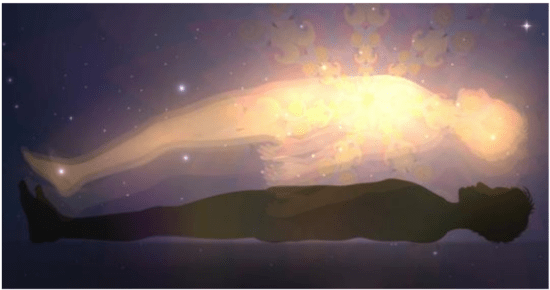Losing a loved one is one of the hardest experiences in life. We all have our unique ways of processing grief, but one common behavior many of us share is dreaming of those who have passed away. If you have ever had a deceased loved one appear in a dream, you may find yourself wondering if these dreams hold any significance.

According to Patrick McNamara, a neurologist and psychiatrist, dreams about dead people are known as visitation dreams. It’s as if the deceased person is visiting you, looking very much alive in your dream. McNamara, who has extensively studied dreams, believes that these visitation dreams serve a purpose – they help us cope with grief and find solace in our loss.
McNamara’s own personal experience of having a visitation dream after his parents’ passing led him to contemplate the idea that these dreams might be a sign of life after death. As someone who approached dreams with a scientific mindset, his conviction in the significance of these dreams became even stronger. If he, a skeptic, could feel such a strong connection with his deceased parents through a dream, imagine the impact it might have on others.

Many studies have delved into the phenomenon of visitation dreams, intriguing researchers and grieving individuals alike. One study published in the American Journal of Hospice and Palliative Care found that dreams of the deceased occur frequently, can hold deep meaning, and contribute to the healing process from the loss. These dreams often revolve around memories or experiences, with the deceased appearing healthy and at peace in the afterlife, sometimes even conveying messages.
Another research conducted by Canadian psychologists focused on 76 individuals who had recently experienced loss. The findings revealed that a majority of the participants found comfort and a stronger belief in an afterlife through dreams of the deceased. These dreams were often described as visitations, providing a sense of connection and solace.

Psychologist Jennifer E. Shorter has also explored the relationship between dreams and grieving individuals. In her study, she identified four key characteristics of a visitation dream. Firstly, the deceased appears as they did in life, often healthier and younger. Secondly, they may communicate their current state – reassuring the dreamer that they are fine. Thirdly, the messages in these dreams are often communicated telepathically rather than in physical form. Lastly, these dreams are typically calm, harmonious, and well-organized.
It’s important to note that the prevalence of visitation dreams is still unknown, and they can occur shortly after or long after the person’s passing. If you have had a dream about a loved one who has died, what did it mean to you? Feel free to share your experience, and if you believe that dreams carry meaning, why not share this article with your friends on Facebook?





